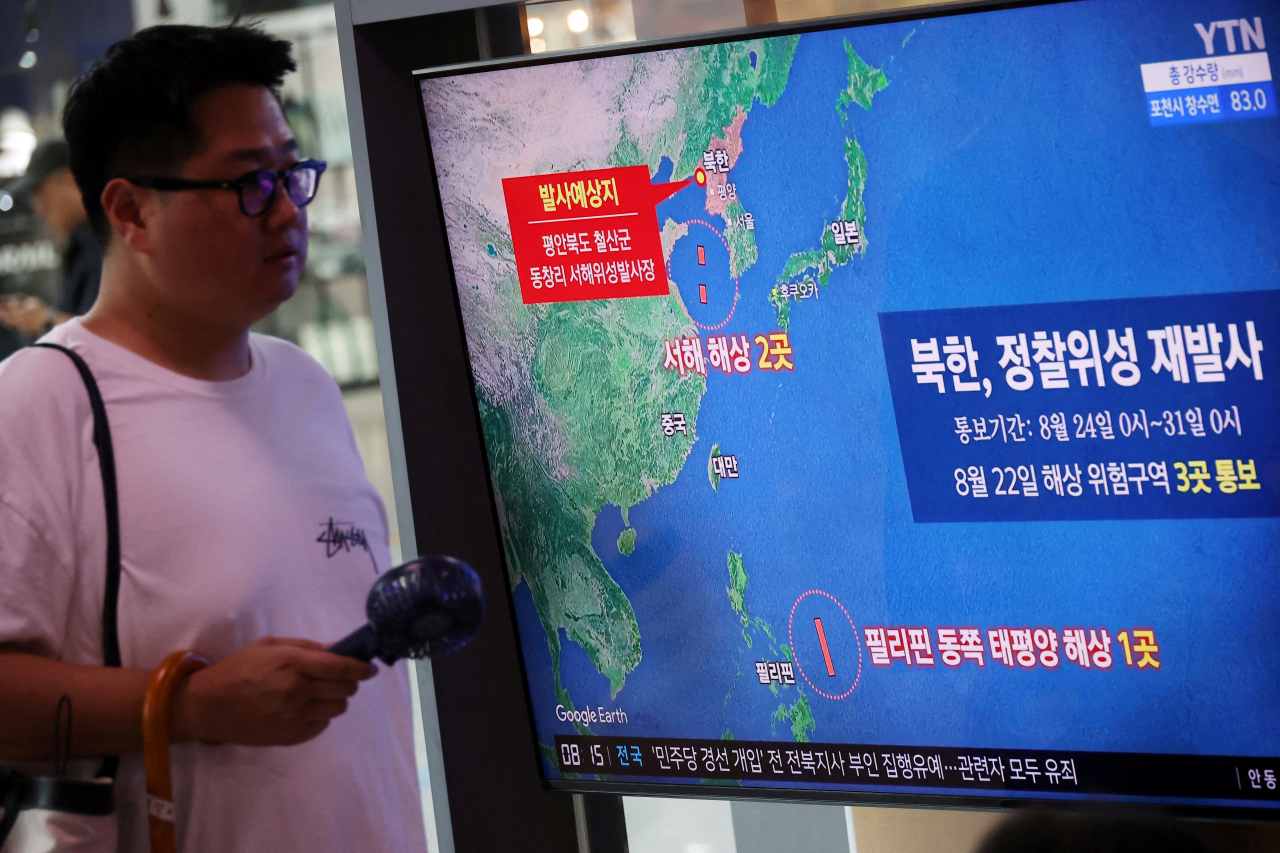
North Korea launched a spy satellite on Tuesday night, around three months after its unsuccessful second attempt to place a domestically developed surveillance satellite into orbit in August.
It is not yet clear if the launch was successful. South Korea's Joint Chiefs of Staff confirmed that "what North Korea claimed to be a military reconnaissance satellite" was launched at around 10:43 p.m. southward from the Tongchang-ri area of North Pyongan Province.
The launch vehicle then passed through international airspace west of the South Korean island of Baengnyeongdo in Incheon and Ieodo, a submerged rock situated within the overlapping exclusive economic zones of South Korea and China.
"Our military has heightened its alert posture and is maintaining full readiness, closely sharing information with the United States and Japan concerning North Korea's claimed 'military reconnaissance satellite,'" the JCS said in a statement.
South Korea's Defense Minister Shin Won-sik on Sunday set Nov. 30 as the latest possible date for the launch. Shin said that the military's assessment indicates that "North Korea has addressed most of the engine-related challenges with support from Russia."
Reliable engines are crucial for a successful spy satellite launch, and rigorous engine testing is needed for them.
The South Korean military believes that Russia has been offering technical guidance to North Korea regarding the third launch. This comes in response to North Korea's supply of weapons to support Russia's invasion of Ukraine.
North Korea attempted to launch a Malligyong-1 spy satellite using a Chollima-1 space launch vehicle at the Sohae Satellite Launching Station in the Tongchang-ri area of North Pyongan Province in May and August. But both efforts failed.
The launch occurred a day before the specified timeframe formally notified to Japan on Tuesday, which extended from Nov. 22 to Dec. 1.
In response, South Korea's presidential office on Tuesday warned that the satellite launch could be a legitimate reason to suspend the Sept. 19 inter-Korean military agreement.
The deal calls for ceasing “all hostile acts” by creating a “no-fly zone” around the border and removing land mines and guard posts in the heavily fortified Demilitarized Zone.
An unnamed senior presidential official stated that the Development of Inter-Korean Relations Act incorporates a provision enabling either South or North Korea to suspend the implementation of any agreed-upon matters, either partially or entirely, in the event of substantial reasons, including those related to national security.
North Korea's satellite launch also violates UN Security Council resolutions, which explicitly forbid the use of ballistic missile technology in such launches. Space launch vehicles and ballistic missiles often share similar technologies that can be interchangeable.



















![[Today’s K-pop] Treasure to publish magazine for debut anniversary](http://res.heraldm.com/phpwas/restmb_idxmake.php?idx=642&simg=/content/image/2024/07/26/20240726050551_0.jpg&u=)